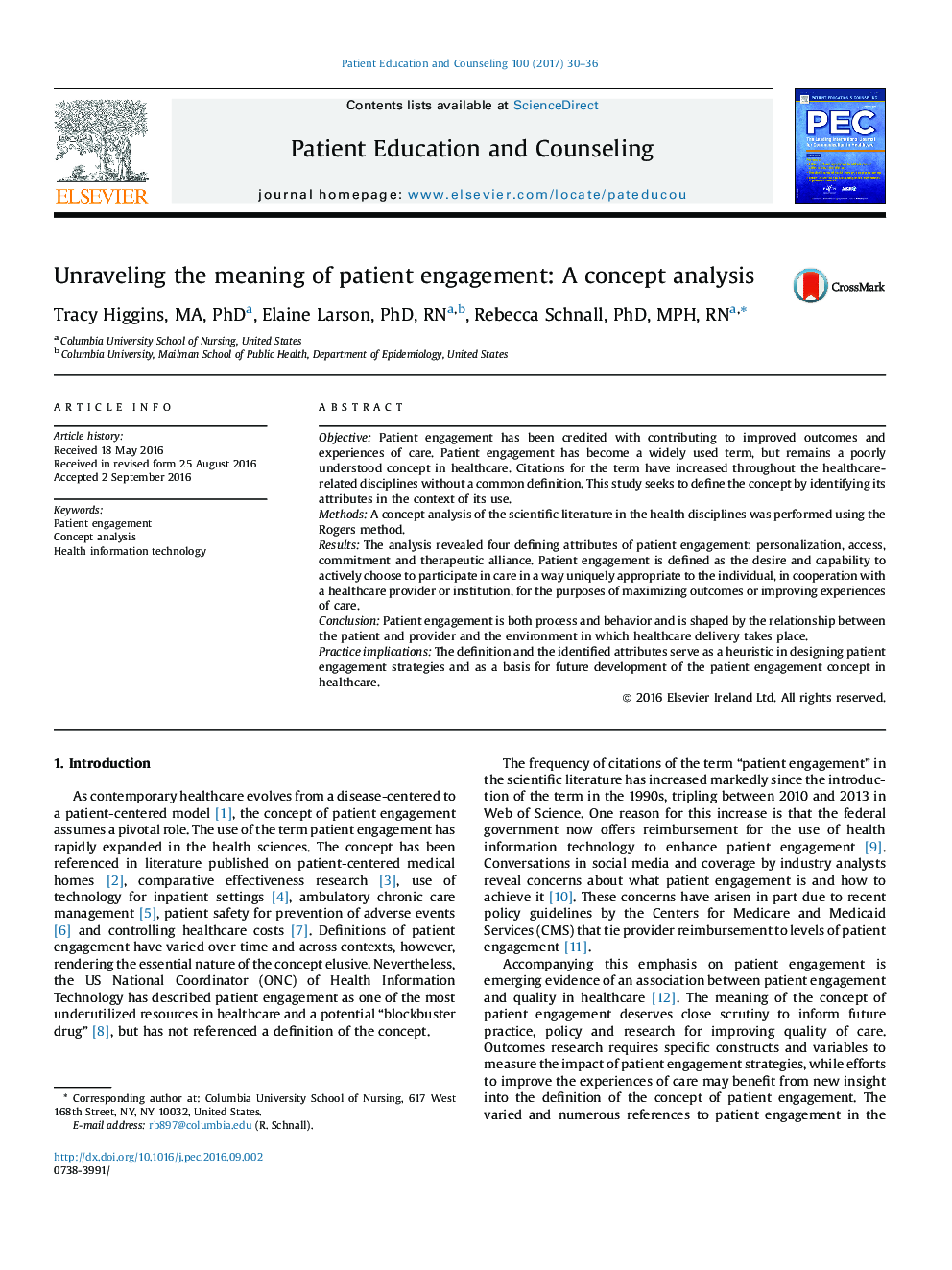| Article ID | Journal | Published Year | Pages | File Type |
|---|---|---|---|---|
| 5682012 | Patient Education and Counseling | 2017 | 7 Pages |
â¢A concept analysis of patient engagement was performed using the Rogers Method.â¢Four attributes were identified: personalization, access, commitment, and therapeutic alliance.â¢The definition and attributes may serve as a foundation for understanding and increasing engagement.
ObjectivePatient engagement has been credited with contributing to improved outcomes and experiences of care. Patient engagement has become a widely used term, but remains a poorly understood concept in healthcare. Citations for the term have increased throughout the healthcare-related disciplines without a common definition. This study seeks to define the concept by identifying its attributes in the context of its use.MethodsA concept analysis of the scientific literature in the health disciplines was performed using the Rogers method.ResultsThe analysis revealed four defining attributes of patient engagement: personalization, access, commitment and therapeutic alliance. Patient engagement is defined as the desire and capability to actively choose to participate in care in a way uniquely appropriate to the individual, in cooperation with a healthcare provider or institution, for the purposes of maximizing outcomes or improving experiences of care.ConclusionPatient engagement is both process and behavior and is shaped by the relationship between the patient and provider and the environment in which healthcare delivery takes place.Practice implicationsThe definition and the identified attributes serve as a heuristic in designing patient engagement strategies and as a basis for future development of the patient engagement concept in healthcare.
